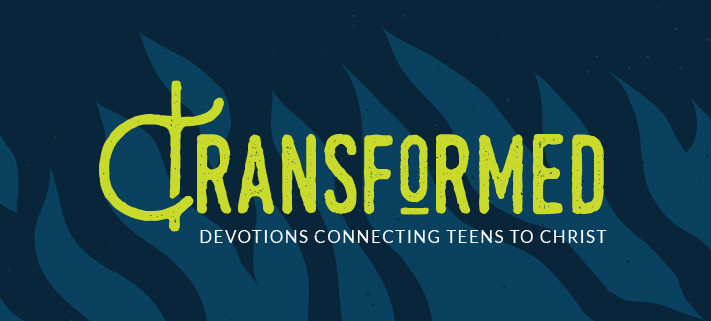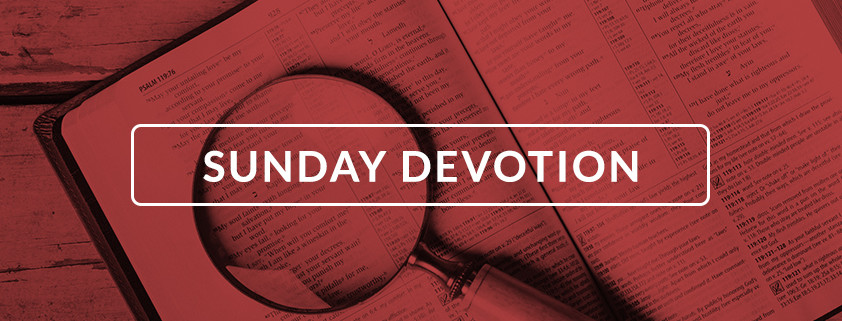Advent Devotion – Just As He Said – Day 12
Just As He Said
We Do Not Lose Heart
“Praise be to the God and Father of our Lord Jesus Christ, the Father of compassion and the God of all comfort, who comforts us in all our troubles, so that we can comfort those in any trouble with the comfort we ourselves receive from God. For just as we share abundantly in the sufferings of Christ, so also our comfort abounds through Christ.”
2 Corinthians 1:3-5
In what ways are you held captive? What distresses your broken heart? Yesterday we journeyed through history to the Babylonian captivity, weeping and mourning with the Israelites who were stripped of their everyday lives and held hostage by a truly evil empire. We reflected with them on the root cause of all evil: the world’s sinfulness.
We still face evil and forms of captivity; of this we are all certain. So what holds you down under a heavy weight right now? Could it be generalized stress that prevents you from achieving true rest? Are you overwhelmed or pushing through burnout? Are you stretched thin by an overscheduled life? Perhaps your captivity is physical and you’re recovering from injury or fighting disease. Maybe the sensory overload of technology and entertainment add to the chaos? Or how’s your relational life? Are you dealing with conflict or marital trouble? Have you lost a loved one? Perhaps you’re enduring as a caretaker or even walking with someone through hospice care.
You and I both know that although my list of captivities was long, I could have kept going. The faults, flaws, and forces of evil that we face every day are vile and varied. And we all shoulder the weighty burden. Just as Jesus often healed the physical ailments that afflicted those around him, he has the power to heal you as well. He has the power to release you. But he came for so much more than our earthly comfort! He came to give you the deepest, longest-lasting type of comfort there is: eternal peace with God!
In our Scripture passage for today, Paul reminds us—even in the midst of our sorrows—to shout praises for the very characteristics of God that set us free from all forms of captivity. He is “the Father of compassion and the God of all comfort.” He sees your tears. He hears your cries. He listens to your pleas for an end to the trouble. And even when you can’t hear, see, or feel a response, he’s still holding you. He’s with you through all your earthly storms and will calm them in his timing. We can wait through the stormy nights, knowing that “weeping may stay for the night, but rejoicing comes in the morning” (Psalm 30:5).
Lift your eyes from the heavy troubles of this earth. Hear God speak to you through Paul: “Therefore we do not lose heart. Though outwardly we are wasting away, yet inwardly we are being renewed day by day. For our light and momentary troubles are achieving for us an eternal glory that far outweighs them all. So we fix our eyes not on what is seen, but on what is unseen, since what is seen is temporary, but what is unseen is eternal” (2 Corinthians 4:16-18).
Though Israel’s captivity in Babylon was heavy, it was temporary. Though your burdens feel so heavy, like more than you could ever bear, they are temporary. They will not outlast your almighty Father!
deliverance—Jesus had come to heal them.
Can you imagine how awesome it would have been to witness these healings? To watch the blind person suddenly able to see God’s creation, loved ones, and the face of the Healer? To see the lame person walk for the first time? To see the diseased person set free? To see Lazarus emerge from the grave? Each of these accounts provides such a glorious, tangible picture of what it feels like to be delivered from a bodily form of captivity.
Jesus healed many people of their physical hurts, diseases, and even death, but this wasn’t the ultimate form of healing or deliverance for which he came to this world. It was for the spiritually poor who are bankrupted by their sin. It was for broken sinful natures. It was for the lives lived in captivity, imprisonment, and mourning because of defiance against a holy God.
Jesus’ healing was for them, and his healing is for you this Advent season! Instead of despair and darkness, you have deliverance. Instead of helplessness and hopelessness, you are held in the hands of your loving Lord. Praise God for sending his Servant, our Jesus, to proclaim this good news, bind up our broken hearts, declare us free, and give us comfort for all eternity!
Prayer:
Lord, I come to you feeling weighed down by my sinfulness and the stresses of this life. In your wisdom and perfect timing, lift these heavy burdens and replace them with the comfort I have through your promises of eternal peace. I trust you to lead and guide me through the storms to your eternal glory. Amen.
Written by Stacy Jensen
Provided by WELS Women’s Ministry













